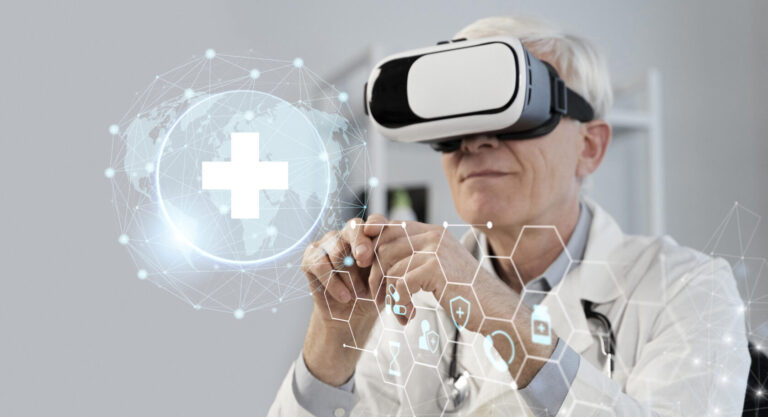Generative AI in Healthcare: From Protein Folding to Personalized Medicine
The healthcare industry stands at the threshold of a technological revolution, driven by Generative AI. Statistically, pharmaceutical companies leveraging AI models like AlphaFold have reduced drug discovery timelines by 50%, saving billions in costs annually. Additionally, the healthcare AI market is projected to grow at a CAGR of 41.7%, reaching $45.2 billion by 2026. How can this technology accelerate drug discovery while reshaping treatment precision? Will Generative AI truly redefine modern medicine, or are we just scratching the surface of its potential? These questions demand exploration as the industry braces for unprecedented change.
The Protein Folding Breakthrough
For decades, understanding how proteins fold into three-dimensional structures has been one of biology’s most formidable challenges. This knowledge is crucial for drug discovery, as misfolded proteins are linked to diseases like Alzheimer’s and Parkinson’s. In 2020, DeepMind’s AlphaFold stunned the scientific community by solving protein structures with remarkable accuracy, a feat accelerated by Generative AI.
But the real question is: What’s next?
The ripple effects of this breakthrough are already being felt. Pharmaceutical companies are leveraging Generative AI models to simulate protein interactions, significantly reducing the time and cost associated with early-stage drug development. For CTOs and CEOs in biotech, the message is clear: those who harness this technology will lead the next wave of innovation.
Personalized Medicine: Beyond One-Size-Fits-All
Generative AI is also paving the way for personalized medicine, where treatment plans are no longer generic but uniquely tailored to each individual’s genetic makeup and medical history.
Picture this: an AI system analyzing millions of patient records, genomic data, and clinical studies to generate a custom treatment plan—not in weeks, but in seconds.
Real-World Impact
- Cancer Treatment: Generative AI is being used to predict how different cancer types respond to specific therapies, enabling oncologists to optimize treatment strategies.
- Rare Diseases: By generating synthetic datasets, AI is helping researchers study rare conditions where real-world data is sparse.
For healthcare leaders, these innovations are not just technological advances—they are strategic differentiators that can improve patient outcomes and reduce costs.
Ethical and Regulatory Considerations
As promising as Generative AI is, its adoption in healthcare comes with significant challenges. Data privacy, bias in AI models, and regulatory compliance are just a few hurdles that must be addressed.
- Data Privacy: Handling sensitive health data requires robust encryption and compliance with laws like HIPAA and GDPR.
- Bias: AI models trained on skewed datasets can perpetuate inequalities in care delivery. Leaders must prioritize diversity in data and transparency in algorithms.
- Regulatory Compliance: Navigating the complex web of global healthcare regulations demands foresight and meticulous planning.
Forward-thinking organizations are already building AI governance frameworks to ensure ethical and effective implementation of these technologies.
Opportunities for Business Leaders
The convergence of Generative AI and healthcare opens new avenues for innovation and leadership. Consider the following opportunities:
- Accelerated Drug Discovery: Pharmaceutical companies using AI have reduced preclinical drug development times by 50%, saving millions of dollars annually.
- Operational Efficiency: Automate administrative tasks, such as patient record analysis and billing, to free up healthcare professionals for more critical roles.
- Enhanced Patient Engagement: Use AI to create personalized health monitoring systems, improving adherence to treatment plans.
Statistically, the global healthcare AI market is expected to grow at a CAGR of 41.7%, reaching $45.2 billion by 2026. For business leaders, this is not just a trend but a mandate to innovate.
Contrarian Viewpoints: Balancing Innovation with Reality
While the promise of Generative AI is immense, it’s crucial to temper expectations with a dose of realism:
- Human Oversight is Irreplaceable: Generative AI can augment decision-making but cannot replace the nuanced judgment of experienced medical professionals.
- Implementation Costs: Adopting AI solutions requires significant investment in infrastructure, training, and change management.
Leaders who navigate these challenges effectively will not only adopt the technology but also shape the future of healthcare.
Closing Thoughts: The Future of AI in Healthcare
Generative AI is not a passing trend; it is a foundational shift that will define the next era of healthcare innovation. From solving complex biological mysteries to delivering personalized care at scale, the potential is boundless. For CEOs, CTOs, and healthcare strategists, the question isn’t whether to adopt Generative AI but how to do so responsibly and strategically.
As the industry evolves, those who lead with vision and adaptability will not only transform their organizations but also redefine what’s possible in healthcare.


